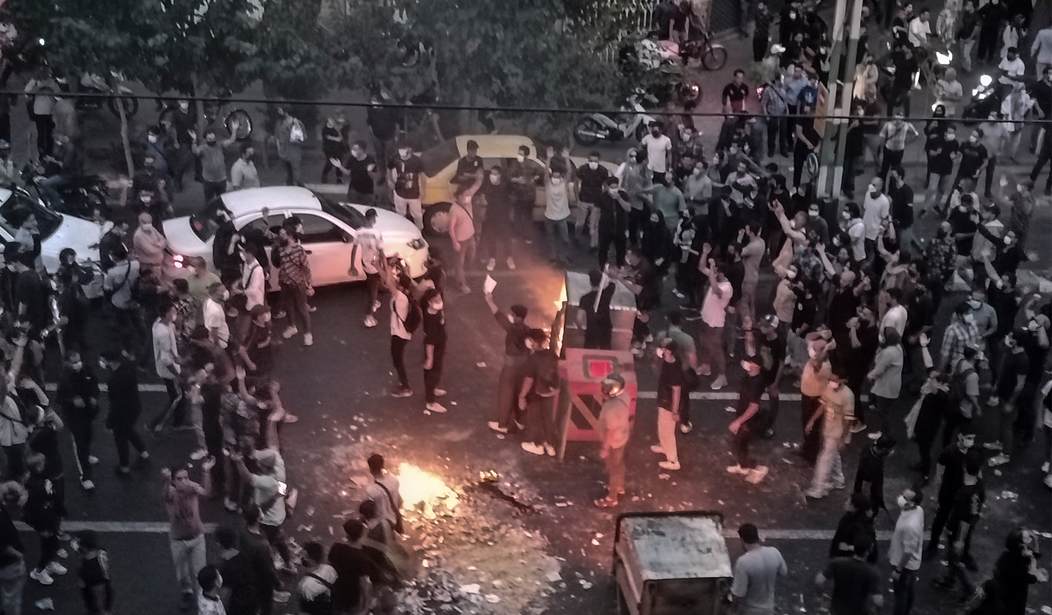Three U.S. soldiers were killed during a drone attack in Jordan on Sunday, setting off a chain of events that will almost certainly result in U.S. retaliation against the nation behind the attack.
The drone may have been launched from Yemen by an Iranian-backed militia, but no militia group would target American military personnel without the explicit backing of the Iranians. We must assume that Iran is deliberately escalating its actions in the region to try and prod the United States into a violent response.
Biden has several options. He could once again target the base from where the drone was launched and pretend that Iran is blameless. He has tried this approach several times after attacks on shipping in the Red Sea and each time, the Houthi rebels have ignored him. Or he might raise the level of violence in the U.S. response, hitting the terrorists harder and destroying more of their infrastructure.
But we get the sense that there's no more avoiding the real issue of who is behind these attacks on American interests and, now, American soldiers. Iran is going to pay, and soon.
Previously, Biden has hit Iranian targets in Syria. That's a possibility here. Biden is still trying to keep the war between Israel and Hamas from spreading. But that may not be possible anymore.
But there's a lingering question of why Iran wants to get into a shooting war with the United States. The answer to that question is directly related to the crisis in Iran that may lead to the downfall of the regime.
Perhaps only the Iranian leadership is aware of how close the country is to economic collapse. It's not the budget deficit of a few billion dollars that's the problem. "What is crucial is the declining energy and water resources in the country, serious imbalances in the economy, lack of money in the government pension funds, and other shortages," according to Vahid Shahri, Assistant Professor of Economics and Islamic Banking at Kharazmi University
“The government should consider all of these deficits in its economic analysis, and the problem lies in the fact that the government does not see these deficits, even though it will be responsible for financing every single one of them,” Shahri argued.
Iran is facing a serious economic crisis since the United States withdrew from the JCPAO nuclear accord and imposed sanctions in 2018. However, the country’s economic vows go much deeper, as the Islamic regime failed to leverage its oil export revenues to properly invest in infrastructure and development since the 1990s. It is estimated that Iran sold around $1.5 trillion of oil in the past two decades, yet it faces a bankrupt government that has a stranglehold over 80 percent of the economy.
Shahri explained that in order to prevent a catastrophic situation, the government needs to spend $100-150 billion annually in the next few years. If this investment is not made, the cumulative effect of imbalances can lead to the collapse of the system.
Related: A Deal Is Close to Free Hamas Hostages and Suspend the War for Two Months. Will Bibi Take It?
Shahri emphasizes that “these imbalances act like a crack in a wall that, after a while, suddenly collapses,” and warns about the social consequences of electricity, gas, and gasoline imbalances, as well as pension funds.
Referring to the water crisis and land subsidence, he said, “At this rate of land subsidence in Isfahan, south of Tehran, and… we are completely losing some cities. The Tehran plain has a land subsidence rate 100 times higher than the global average. Water imbalance and land subsidence are connected, but their places of struggle and control are different from each other. We even get anxious just thinking about the consequences of water imbalance.”
So the conflict with the U.S. could be a "wag the dog" scenario, Iranian style. It certainly would solve a host of problems that the leadership sees as a far more immediate threat than an economic collapse in 5 years.
A shooting war with the U.S. would unite the Iranian people behind the regime. Those who oppose the war could easily be identified and sent to the Evin Prison dungeons. Hence, no more troublesome opposition.
And whatever the U.S. does, Biden will not work to bring the regime down. The regime would survive any U.S. conflict to claim "victory" over the Great Satan. And the Middle East would be no more secure.
And the U.S. would be no safer.










